In the wake of a barely thwarted apocalypse and having traveled 56 years back in time to escape said devastation, the latent superpower prodigy Vanya Hargreeves of Netflix's The Umbrella Academy finds love with another woman more kinetic than the powerful soundwaves she manipulates. The hopeful love story in the show about superhero siblings that's set at a time when the only depictions of queer women on screen ended with madness, a forced return to men, or even death, rewrites the painful tropes that often befell queer women of the era.
The Umbrella Academy's second season begins following Vanya's brother Five's attempt to stop the 2019 apocalypse of her accidental making. She and her six superpowered siblings are hurtled back in time to Dallas but on various dates in the early 1960s. For much of the new season of the series based on the comic books from writer Gerard Way and illustrator Gabriel Ba, the Hargreeves siblings engage in shoot-outs and choreographed knife fights with their enemies from the future, all against the unrest of the civil rights movement and the impending assassination of John F. Kennedy. Meanwhile, Vanya, a tabula rasa who lost her memory during her temporal journey, is sequestered as a live-in nanny in a farmhouse where she and Sissy, the housewife who rescues her from the alley where she lands, quietly fall in love.
"When I was first talking with Steven [showrunner Steven Blackman] about being a part of the second season, I was just really looking forward to it -- to be playing this character in the show and to have her fall in love for the first time and for it to be with a woman," Elliot Page, who plays Vanya, tells The Advocate.
"We just really wanted to be mindful about how to be sensitive, how to show the joy and the beauty, and then the obvious obstacles at the time," she says of honoring the difficulties two women together in 1963 would have encountered. Page, who came out in 2014, tosses a question during the conversation with The Advocate to his costar Marin Ireland (Sissy) to see how the idea of the love story impacted her.
"We had a lot of conversations about the existing negative tropes that we've seen during this particular time period of the early '60s and late '50s for these kinds of stories," says Ireland, who's starred in Homeland, Sneaky Pete, and the queer-themed film The Miseducation of Cameron Post. "We talked a lot about what the representation was like at that time and how everybody ended up committing suicide or going to prison in books about gay and lesbian relationships and things like that in movies."

"So we were definitely mindful of a sense of rewriting something as well, even though we were also trying to be authentic to the era," she adds. "We were trying to find a way to let it feel like it was authentic without being tragic in a way that actually felt detrimental to the sort of forward movement we hope to still continue with."
A time traveler who doesn't realize she's from the future due to her memory loss, Vanya brings with her the advantage of an underlying modern ethos of fearlessness free from the shame forced on queer people in the mid-20th century. Vanya's confidence in their love and the hope that there's a way to be together impacts Sissy, who's been an abiding, dutiful wife to her inattentive husband and a doting mom to her son Harlan, who is likely on the autism spectrum. One way in which the women bond is over their shared love of Harlan and the desire to protect him against the tumult of their private drama that unfolds in the shadow of another impending apocalypse triggered by Five's time-jumping the siblings to another era.
"Something that [Elliot] and I talked about in particular that helped us was being able to focus on Harlan and the danger there. That unlocked something for us in terms of feeling like that's something where both of these women love that kid," Ireland says. "That felt like a really good bridge for us [that was] authentic and real that they would prioritize above everything else. And that unlocked something for us."
As much as Vanya's arrival and integration at the farmhouse provides solace and a sense of purpose for Sissy, likewise, Sissy changes the narrative for Vanya, who was always the outsider. She was the Hargreeves sibling who was most otherized growing up, in large part because she was told she was void of superpowers. Some of her siblings' powers include Allison's (Emmy Raver-Lampman) ability to "rumor" someone into action, Klaus's (Robert Sheehan) communing with the dead, and Five's (Aidan Gallagher) time-hopping. In a first for the outsider Vanya, Sissy loves her unconditionally. Complications begin for the women when Sissy's husband finally catches on and Vanya's powers emerge in response to danger as she's tracked by enemies who've followed her to the timeline.
SPOILERS ahead for those who have not finished The Umbrella Academy's season 2.

Of course, the Hargreeves siblings can't remain in the past, even if Allison, who's been in the '60s for a few years, is in love, married, and a key figure in uprisings of the civil rights movement in Dallas, or if Klaus has amassed a cult of devoted followers. To stop the second apocalypse, Vanya must join her brothers and sister and return to the future. Try as she might to convince her love interest to join them, Sissy contends that it's neither safe nor feasible for her and Harlan to time-jump with Vanya into a future that would accept them as a family.
"I feel lucky and fortunate to be involved with this project [with Netflix's immense reach] where we were able to tell the story in this way. That was one of Marin and I's main concern, throughout the whole season, [was to] show the realities of the obstacles," Page says of the story in which the women ultimately can't be together at the juncture in which the second season occurs.
"What is the best way in which we can have these two characters feel changed and opened up in a whole new way and filled with extraordinary hope in terms of their individual lives and meaning a real sense of themselves?" Page says they considered. "The storyline, for them as individuals, and, obviously, the relationship is ultimately so hopeful. That's definitely what we were aiming towards."
When Page touches on the idea of hope in a story that closes with the women parted, he refers to their being forever changed for knowing and loving one another. One result is Sissy's decision to leave Dallas with her son and to carve a new path at a time when a woman's worth was considered inextricable from a man. But Page, a passionate LGBTQ+ activist, draws a through-line of hope from those who fought for equality at the time The Umbrella Academy's second season takes place and those who continue to create change for marginalized people.
"I look to all those who do such extraordinary work, who've worked for a long, long time that have allowed me to have a lot of the rights I have," Page says. "Lots of people were really active back in the '60s, of course. And I reflect on those who put everything on the line."
"We were at the protests in New York and those were incredibly moving," Page says of marching with Black Lives Matter. "They shouldn't have to happen, obviously, but I think seeing that amount of people come together ... there have been some major shifts. That's what I think of in terms of feeling hope."
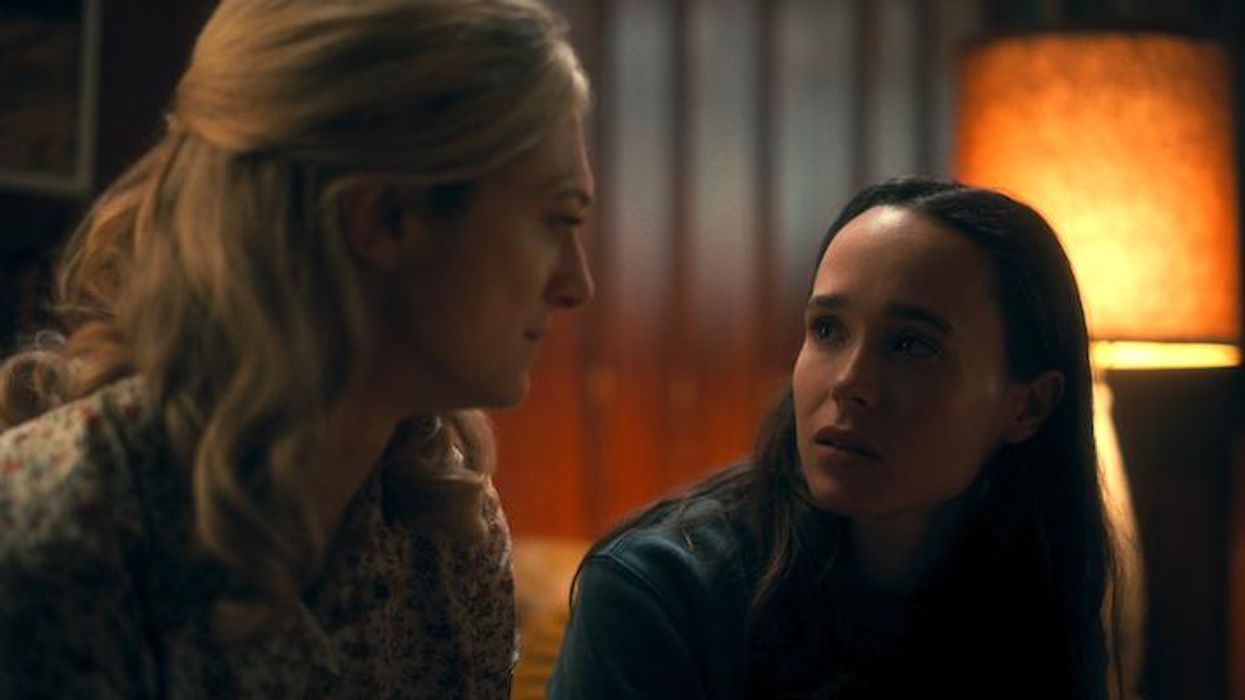

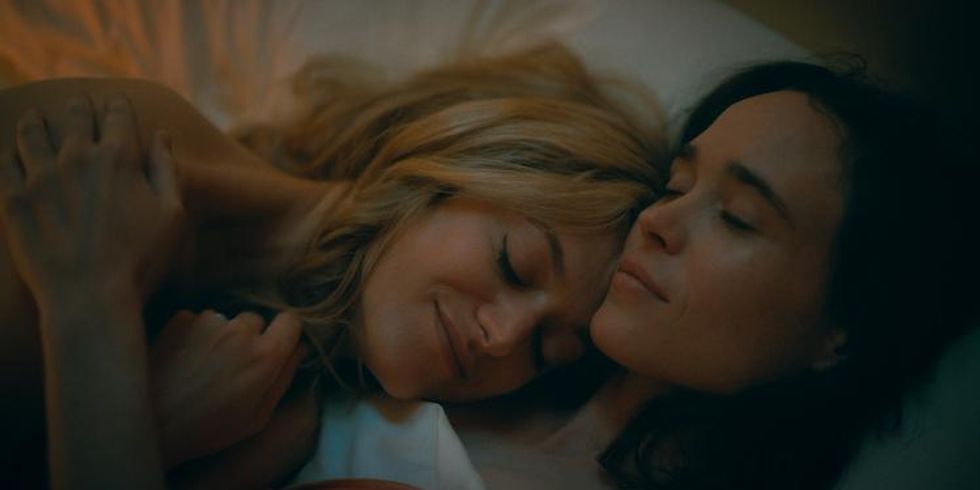
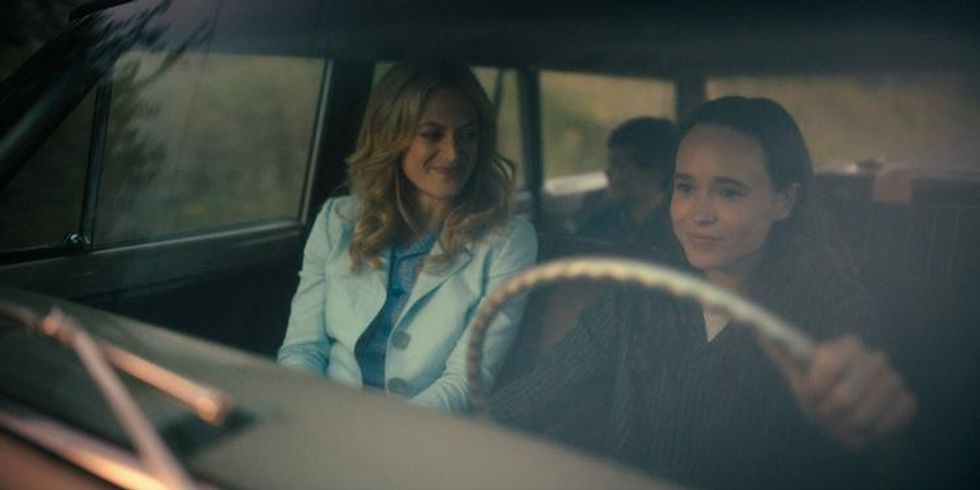










































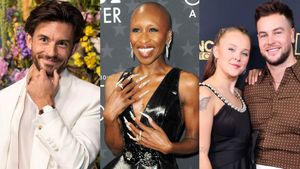


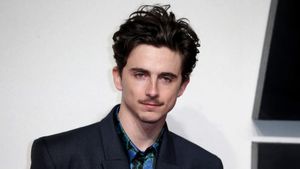



















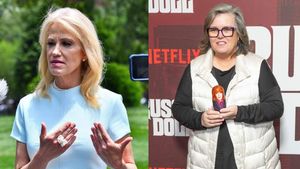

Charlie Kirk DID say stoning gay people was the 'perfect law' — and these other heinous quotes